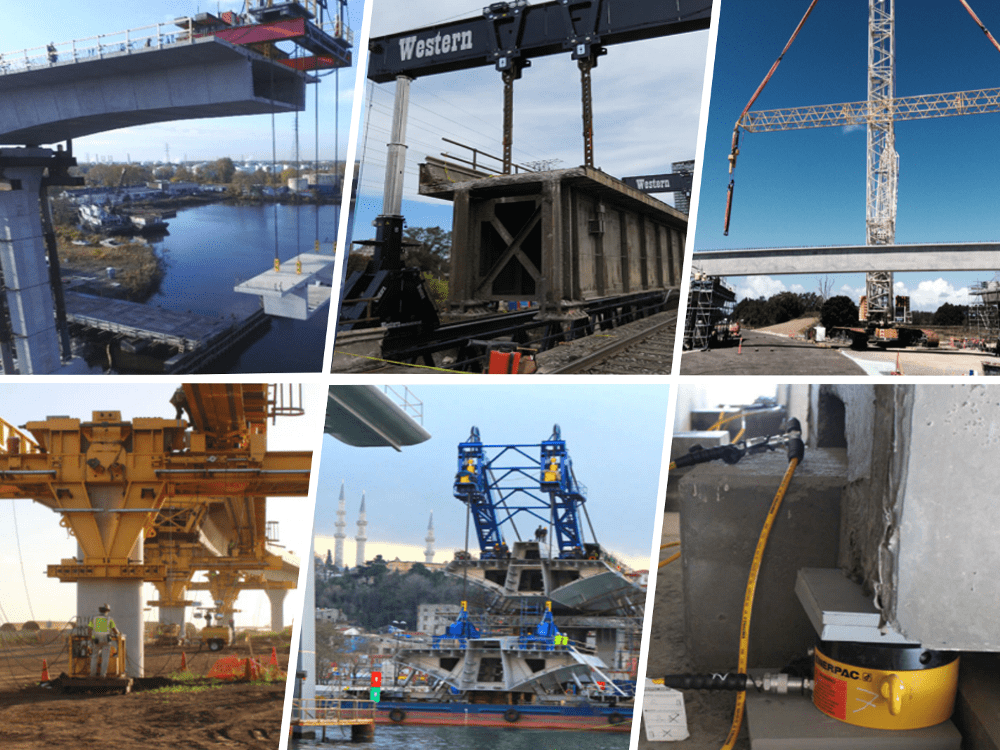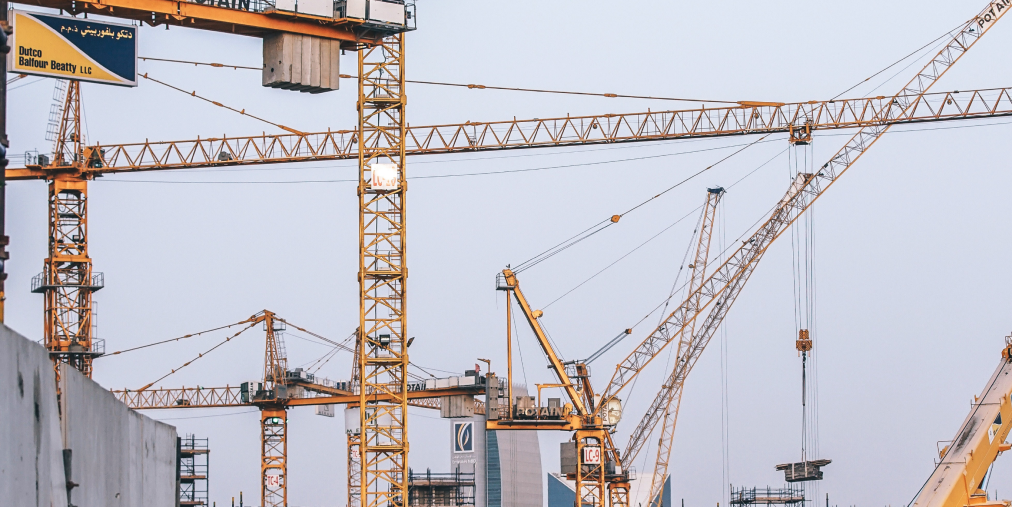Checking Out the Financial Conveniences of Renting Building Devices Contrasted to Owning It Long-Term
The choice between leasing and owning building devices is pivotal for economic administration in the market. Renting offers prompt expense financial savings and functional adaptability, allowing business to allot sources a lot more successfully. Recognizing these nuances is essential, especially when considering just how they line up with specific task requirements and monetary methods.

Expense Contrast: Leasing Vs. Owning
When examining the financial implications of owning versus leasing building devices, a detailed price comparison is crucial for making educated choices. The option between having and renting out can substantially influence a firm's profits, and recognizing the linked prices is crucial.
Renting out building tools normally includes lower upfront prices, enabling businesses to designate resources to other operational needs. Rental arrangements usually consist of adaptable terms, allowing business to access progressed equipment without long-term dedications. This flexibility can be especially advantageous for temporary tasks or rising and fall work. Nonetheless, rental prices can collect gradually, potentially exceeding the expense of possession if tools is needed for an extensive duration.
On the other hand, possessing building and construction tools requires a significant first investment, along with ongoing expenses such as insurance, devaluation, and financing. While ownership can result in lasting savings, it additionally binds capital and may not offer the same degree of flexibility as renting. Additionally, possessing devices necessitates a dedication to its application, which may not constantly align with task needs.
Inevitably, the decision to have or rent out ought to be based on an extensive analysis of particular task requirements, monetary capability, and long-term critical objectives.

Maintenance Duties and expenses
The option in between leasing and owning construction tools not only involves monetary factors to consider but likewise encompasses recurring upkeep expenses and duties. Possessing tools needs a significant dedication to its upkeep, which consists of regular inspections, repair work, and possible upgrades. These responsibilities can rapidly gather, resulting in unanticipated expenses that can stress a budget.
In contrast, when leasing devices, upkeep is typically the obligation of the rental company. This plan enables specialists to avoid the economic burden associated with deterioration, along with the logistical difficulties of scheduling repairs. Rental agreements usually consist of arrangements for upkeep, indicating that contractors can concentrate on completing projects rather than fretting regarding devices problem.
In addition, the varied array of equipment available for rent enables firms to select the most recent models with sophisticated innovation, which can enhance performance and efficiency - scissor lift rental in Tuscaloosa, AL. By choosing services, services can avoid the long-term responsibility of tools devaluation and the linked upkeep frustrations. Inevitably, evaluating maintenance costs and responsibilities is essential for making a notified choice about whether to rent or own construction equipment, dramatically influencing total task expenses and operational efficiency

Devaluation Effect on Possession

A substantial factor to take into consideration in the choice to possess building and construction devices is the influence of devaluation on general ownership costs. Devaluation represents the decline in worth of the equipment over time, influenced by aspects such as usage, wear and tear, and innovations in innovation. As devices ages, its market worth lessens, which can considerably affect the owner's financial position when it comes time to market or trade the equipment.
For construction companies, this devaluation can translate to substantial losses if the equipment is not made use of to its maximum capacity or if production rental companies it lapses. Owners should represent depreciation in their monetary projections, which can cause higher general expenses compared to renting out. In addition, the tax obligation effects of devaluation can be intricate; while it may give some tax advantages, these are frequently balanced out by the truth of decreased resale worth.
Inevitably, the problem of devaluation emphasizes the importance of recognizing the long-term economic dedication associated with having building and construction devices. Firms need to very carefully review how commonly they will use the devices and the prospective economic impact of devaluation to make an informed decision concerning possession versus renting out.
Monetary Versatility of Leasing
Renting building and construction tools provides substantial financial adaptability, allowing companies to allot resources a lot more efficiently. This flexibility is specifically critical in a market identified by changing task demands and varying workloads. By deciding to rent out, services can prevent the substantial resources outlay needed for acquiring devices, preserving cash money flow for various other operational needs.
Additionally, leasing devices enables business to customize their equipment selections to details project needs without the long-lasting dedication linked with ownership. This suggests that businesses can quickly scale their equipment stock up or down based upon awaited and existing task needs. Consequently, this versatility reduces the risk of over-investment in machinery that might become underutilized or obsolete in time.
Another monetary advantage of leasing is the possibility for tax advantages. Rental payments are frequently thought about business expenses, permitting prompt tax obligation reductions, unlike depreciation on owned equipment, which is spread over several years. scissor lift rental in Tuscaloosa, AL. This immediate expenditure acknowledgment can better boost a business's visit their website money position
Long-Term Task Factors To Consider
When evaluating the lasting demands of a building organization, the choice in between having and leasing equipment comes to be much more complicated. Key variables to think about consist of job duration, frequency of usage, and the nature of upcoming tasks. For jobs with extensive timelines, purchasing tools may seem useful because of the possibility for lower general prices. However, if the devices will certainly not be utilized constantly throughout projects, having might bring about underutilization and unnecessary expense on upkeep, storage, and insurance coverage.
Additionally, technological developments present a considerable factor to consider. The construction industry is developing quickly, with new equipment offering enhanced efficiency and safety features. Renting permits firms to access the current modern technology without devoting to the high in advance expenses associated with buying. This flexibility is specifically valuable for organizations that manage diverse projects calling for various sorts of equipment.
In addition, monetary security plays an essential function. Possessing devices often requires significant resources investment and devaluation issues, while renting out enables even more predictable budgeting and capital. Eventually, the choice in between renting and having should be lined up with the critical objectives of the building and construction business, taking into consideration both awaited and current job needs.
Conclusion
In verdict, renting out building and construction equipment uses considerable economic benefits over see here long-lasting ownership. Ultimately, the decision to rent instead than own aligns with the vibrant nature of building projects, allowing for flexibility and access to the latest equipment without the financial worries linked with possession.
As devices ages, its market value diminishes, which can significantly affect the proprietor's monetary setting when it comes time to sell or trade the equipment.
Leasing construction tools supplies considerable financial flexibility, permitting business to assign sources a lot more effectively.Additionally, renting out devices enables firms to tailor their equipment selections to certain project needs without the long-lasting dedication connected with ownership.In verdict, leasing construction devices provides significant monetary benefits over long-lasting possession. Inevitably, the decision to rent out rather than very own aligns with the dynamic nature of building projects, enabling for adaptability and accessibility to the latest tools without the monetary worries connected with ownership.